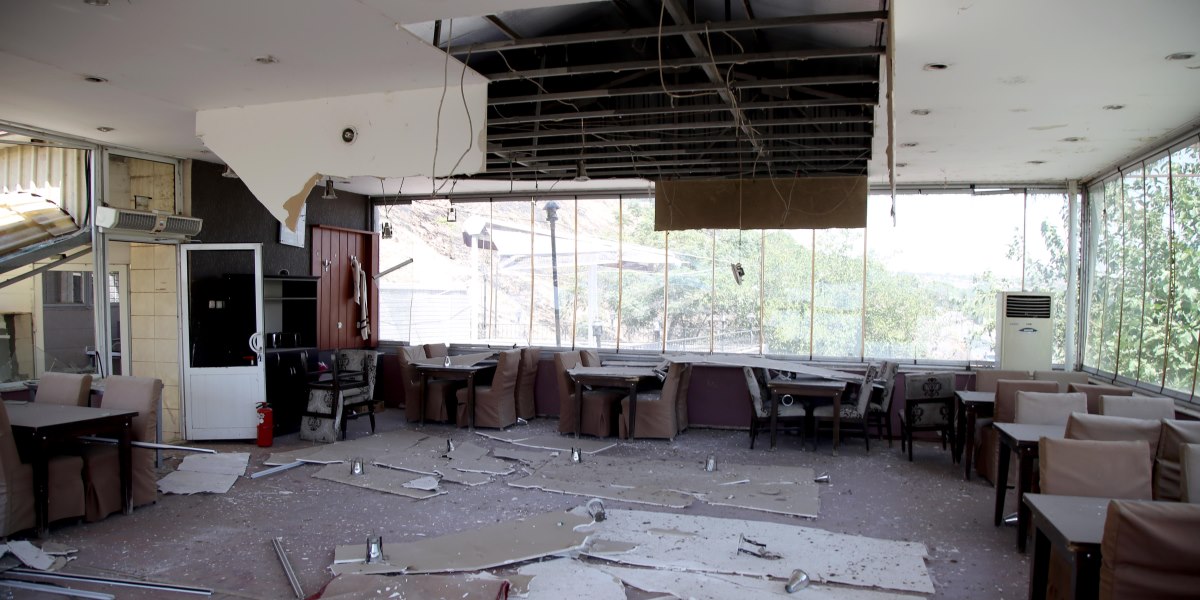On August 14, on the third day of Qurban Bayram, a man named Ahmet Budak was murdered in front of his children in broad daylight by PKK terrorists. Budak was a civilian politician who had been a parliamentary candidate from the Justice and Development Party (AK Party) in the Nov. 1 election. If there was anything more horrifying than the PKK murdering a civilian in the middle of the street in broad daylight in front of his children, it was that they then proceeded to post tweets, mocking the crying child whose father had been murdered. This succinctly summarizes the point the PKK has finally reached.
Four days after the failed coup attempt on July 15, the PKK began attempting to bring into force its new terror strategy. Carrying out large scale terror attacks in city centers, through suicide bombers, and undertaking political murders are important parts of this strategy. This openly and clearly means the increase of "civilian losses." A large majority of these civilians are from a Kurdish background. And in fact, in the terrorist attacks the PKK has carried out since July 19, tens of citizens have lost their lives.
This situation is narrowing the PKK's already constricted societal legitimacy even more. It is possible to see the traces of this in the rallies held by the Peoples' Democratic Party (HDP), the PKK's political arm. The HDP is unable to bring together even a 10th of the crowds it was able to gather prior to the June 7 and even Nov. 1 election. What's more, we are seeing that the HDP's calls for boycotts and actions is not finding any reciprocation in society and that in this sense as well, the HDP's space for political maneuvering is becoming constricted.
In this period, I saw this clearly through the discussions I held with people from the region. The disappointment and anger of the people who voted for the HDP is increasing by the day. The HDP acting according to the PKK's orders instead of the socio-cultural and economic demands of the Kurdish people came at a huge cost for the region's people. The matter that particularly angered people was the trenches dug by the PKK. The votes that were cast in order to pave the way for political representation and the process of peace came to create one of the bases of the "revolutionary people's war" process started by the PKK. The other foundation of the PKK was the opportunities it gained or was offered in northern Syria.
Despite the opposition propaganda carried out by the PKK, a majority of the region's people regard the PKK and its supporter the HDP as the reasons behind the paralysis of daily life in the country's southeast that has been ongoing since last year. The PKK and HDP regard the Kurdish people not just as a "monolithic political unit" but also as a "military support unit" to be mobilized when necessary. This perspective brings with it an attempt on the part of the PKK and HDP to discipline the people in a top-down manner. However, the people are asking to live their daily lives, to benefit from the boons of the process of modernization and development that Turkey is experiencing, and refusing the Jacobean attitudes heaped upon them.
Despite this situation, the PKK is continuing with its activities without a care for the losses of support and legitimacy it has experienced. It is attempting to engage in extremely aggressive action. Especially after Operation Euphrates Shield, it is expending efforts to enter Turkey in large groups and engage in activities. There are two reasons behind this aggressiveness. The first is that it is aware that no matter the state of its power in Syria, if it continues to lose ground at this speed in Turkey, it will become an ineffectual factor. The PKK is gradually losing ground in Turkey. What's more, Turkey has become an even more serious danger for the PKK due to the cross-border operations that have begun in order to cleanse its southern border from terrorist formations. Through its aggressive terror attacks in Turkey, the PKK is attempting to limit Turkey's maneuvering space in Syria. The second reason is that the PKK, through the actions it carries out, is trying to show both its own militants and the Western public - the U.S. foremost among them - that it is a "useful actor" against Turkey.
However, the PKK is unable to actualize the large scale and influential actions it wants. More than a hundred of the PKK's actions have been prevented prior to them occurring in the recent period. On the first day of Qurban Bayram (Feast of the Sacrifice), the bomb mechanism set up in the family cemetery of Mehdi Eker, the Justice and Development Party's (AK Party) vice president in charge of foreign affairs, was noticed beforehand and destroyed. If the mechanism had not been noticed, an attack would have occurred on the first day of bayram where nearly a hundred people would have died, including Mehdi Eker.
The PKK was able to carry out a terrorist attack in Van on the first day of bayram, but it was unable to get the results it wanted from this attack. In this attack, where 58 people were wounded, what was actually desired was for the deaths of hundreds of people in central Van. This was prevented through the intervention of security forces.
In the new period, the state is continuing its strategy of struggling against terrorism in a manner integrated with the PKK. This is making the PKK gradually more aggressive. This struggle is not with PKK militants alone, there is also an attempt to take away the places where a type of "parallel public authority" has been constructed by the PKK. Administrators being appointed to HDP municipalities is an issue that must be considered particularly within this context.
[Daily Sabah, September 16, 2016]









